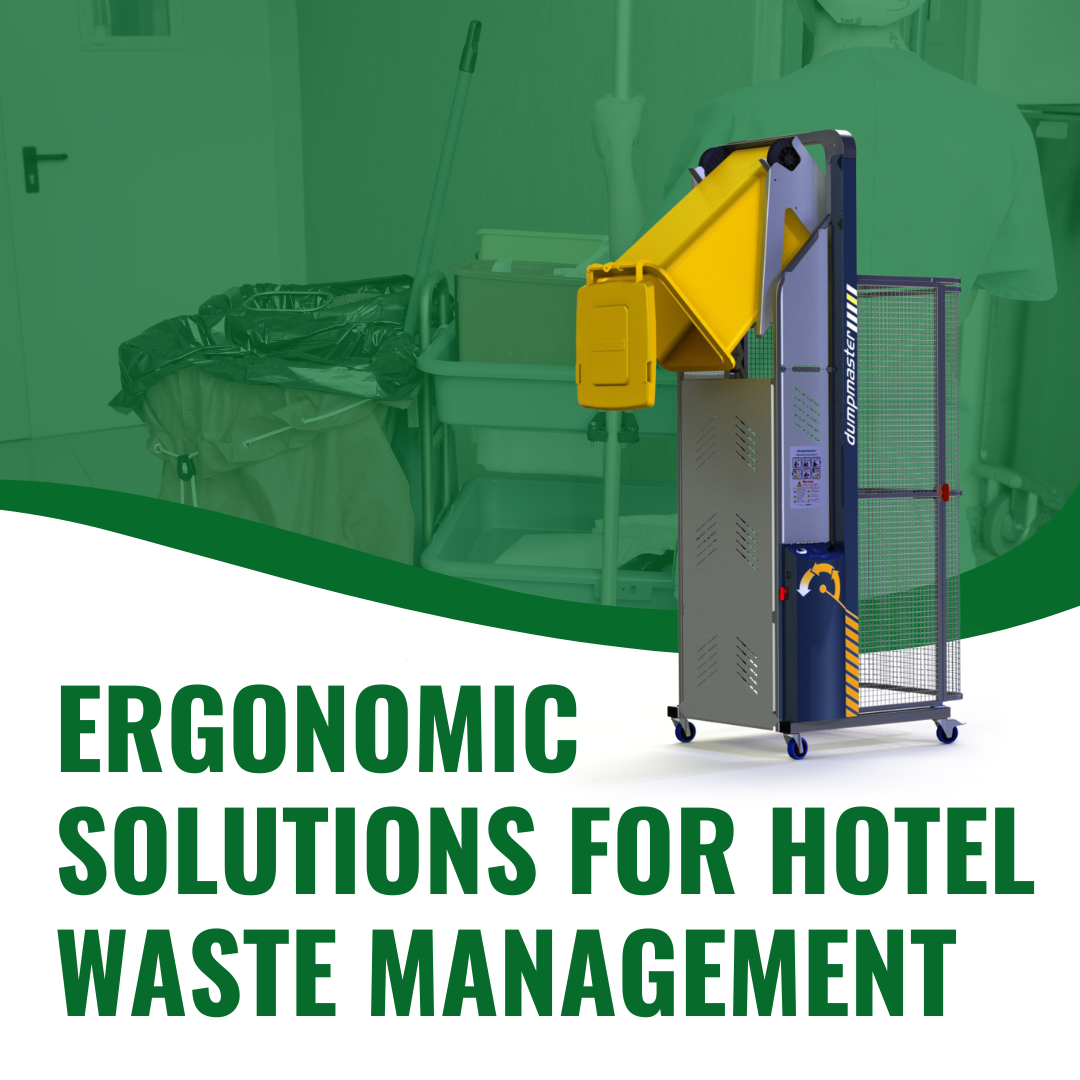We use cookies to make your experience better. To comply with the new e-Privacy directive, we need to ask for your consent to set the cookies. Learn more.
Ergonomic Solutions for Hotel Waste Management
What's the best way to keep housekeepers safe during hotel waste management tasks? Unsurprisingly, it's all about ergonomics. Here are the basics:

The average hotel guest leaves about 2 pounds of waste behind for every night they stay, reports industry site Green Hotelier. Hotels might have hundreds, even thousands, of rooms per floor. Two pounds per night per room can add up quickly, and somebody has to move that waste through the disposal stream.
More often than not, that “somebody” is the housekeeping staff. Housekeepers already face an increased risk of developing cumulative trauma injuries and musculoskeletal disorders just from the physicality of cleaning tasks. It’s crucial to avoid adding to that burden with the facility's waste stream. These ergonomic tips can keep staff healthy and comfortable along the entire waste disposal route.
1. Train staff to avoid bending at the waist.
"Housekeeping is a physically demanding and very tiring job," writes the Canadian Centre for Occupational Health and Safety (CCOHS). Handling the sheer number of waste bins is a big part of this demand.
In each room, housekeepers might remove trash bags, or they might simply empty bins into their cart. Either way, discourage staff from bending at the waist as they work. This movement places stress on vertebral discs, and can lead to serious back injuries over time.
2. Recommend using both hands when pushing a cleaning cart.
Cleaning carts get heavier throughout the day as their bins fill up. The Occupational Safety and Health Administration (OSHA) recommends pushing carts with both hands, particularly when the carts carry heavy loads, which a cleaning cart certainly will at some point during the day.
Using both hands also encourages the most ergonomically beneficial posture, with straight shoulders and weight equally distributed. It’s worth getting into the habit even when the cart-mounted bin is totally empty.
3. Encourage staff to empty trash at every opportunity.
It's also a good idea to keep weight down on cleaning carts in general. Housekeepers can control waste weight by stopping in at a centrally located, larger-scale trash receptacle between rooms. The more often a worker empties the garbage, the lighter the cart will remain.
Provide a mechanical garbage can dumper to empty centralized bins when they fill up.
Central trash bins get heavy quickly, but unfortunately, the waste stream doesn't end there. Housekeepers still need to empty garbage into dumpsters for final disposal.
Lifting and emptying trash cans involves just about every hazardous motion listed in OSHA guidelines. The task requires heavy lifting, extending arms outside of the safe zone, and twisting the body awkwardly.
Avoid these risks by providing staff with a Bin Dumper from Solus Group. These portable machines safely and efficiently empty bins of any size. Optional guard panels keep staff safe during the process, which is quick and simple.
When a task has proven ergonomic risks, the safest response is to automate that task. Bin Dumpers provide this protection for the final step in the waste handling process, which is crucial in the hotel industry.
The CCOHS points out that "a housekeeper changes body positions every three seconds while cleaning a room."
That's already considered pretty heavy work. But it gets worse.
"If we assume that the average cleaning time for each room is 25 minutes," the CCOHS writes, "we can estimate that a housekeeper assumes 8,000 different body postures every shift."
Each of those postures requires movement that increases the potential of developing a musculoskeletal injury. While managers can't remove this risk entirely, ongoing training in ergonomics for every working task — including hotel waste management — can help to keep staff as safe as possible. Combine training with tools like Bin Dumpers to do the heavy lifting, and on-the-job injuries may become a thing of the past.
References:
“Hotel Housekeeping.” CCOHS. Canadian Centre for Occupational Health and Safety, n.d. Web. 27 Sept. 2016.
“Housekeeper Managers: Improving Housekeeping Work using Ergonomics.” OSHA. Occupational Safety and Health Administration, United States Department of Labor, n.d. PDF. 27 Sept. 2016.
“Waste Management.” GreenHotelier. International Tourism Partnership, 27 Nov. 2009. Web. 27 Sept. 2016.
